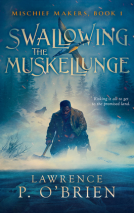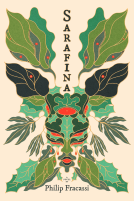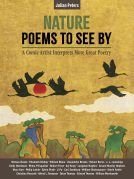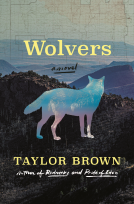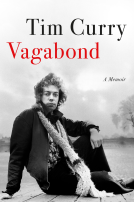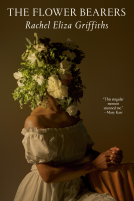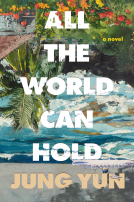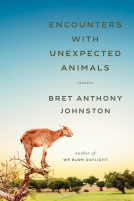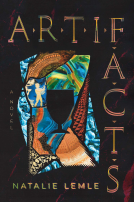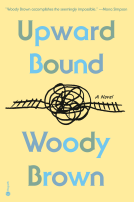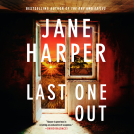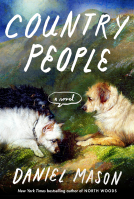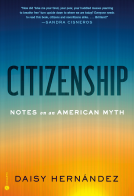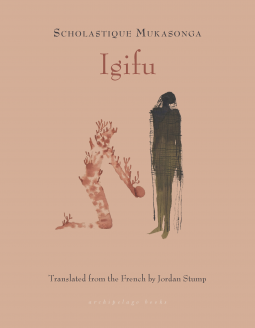
Igifu
by Scholastique Mukasonga
This title was previously available on NetGalley and is now archived.
Send NetGalley books directly to your Kindle or Kindle app
1
To read on a Kindle or Kindle app, please add kindle@netgalley.com as an approved email address to receive files in your Amazon account. Click here for step-by-step instructions.
2
Also find your Kindle email address within your Amazon account, and enter it here.
Pub Date Sep 15 2020 | Archive Date Jul 05 2020
Talking about this book? Use #Igifu #NetGalley. More hashtag tips!
Description
Scholastique Mukasonga's autobiographical stories rend a glorious Rwanda from the obliterating force of recent history, conjuring the noble cows of her home or the dew-swollen grass they graze on. In the title story, five-year-old Colomba tells of a merciless overlord, hunger or igifu, gnawing away at her belly. She searches for sap at the bud of a flower, scraps of sweet potato at the foot of her parent's bed, or a few grains of sorghum in the floor sweepings. Igifu becomes a dizzying hole in her stomach, a plunging abyss into which she falls. In a desperate act of preservation, Colomba's mother gathers enough sorghum to whip up a nourishing porridge, bringing Colomba back to life. This elixir courses through each story, a balm to soothe the pains of those so ferociously fighting for survival.
Her writing eclipses the great gaps of time and memory; in one scene she is a child sitting squat with a jug of sweet, frothy milk and in another she is an exiled teacher, writing down lists of her dead. As in all her work, Scholastique sits up with them, her witty and beaming beloved.
Advance Praise
Praise for The Barefoot Woman:
• "The Barefoot Woman powerfully continues the tradition of women's work it so lovingly recounts. In Mukasonga's village, the women were in charge of the fire...In her work - six searing books and counting - she has become the keeper of the flame." - Parul Sehgal, The New York Times
• The Barefoot Woman is simultaneously a powerful work of witness and memorial, a loving act of reconstruction, and an unflinching reckoning with the Rwandan Civil War...An essential and powerful read. - Zadie Smith
• "A profoundly affecting memoir of a mother lost to ethnic violence. . . A loving, urgent memorial to people now "deep in the jumble of some ossuary" who might otherwise be forgotten in time." - Kirkus Reviews, starred
• "In this elegant and lyrical memoir, Scholastique Mukasonga tells the story of her mother, Stefania, one of thirty-seven of Mukasonga's family members who was eventually killed in the Rwandan genocide. In these pages, Stefania lives as the heart of her exiled Tutsi community, a determined, funny, and graceful woman who keeps watch over the neighborhood on her termite mound, acts as a matchmaker and healer, and obsessively plots her children's escape. Mukasonga masterfully conveys how the joys of daily life can co-exist with horror and Jordan Stump's translation honors this outstanding storyteller and her remarkable personal history." - NBA Judge's Citation
• "The memories of childhood, a lost home, a mother who sacrificed herself are the pounding heart of the book, and Mukasonga has produced a work that anyone who might read it will remember." -Eleni Theodoropoulos, Literary Hub, Best Translated Novels of the Decade
• "Mukasonga is a master of subtle shifts in register - a skill inherited, perhaps, from the Rwandan traditions of intricate courtesy and assiduous privacy that Stefania maintained. She turns everything over restlessly: In her prose, poignant reminiscences sharpen into bitter ironies, or laments reveal flashes of comedy, determination, defiance." -- Julian Lucas, The New York Times
• "The Barefoot Woman is a resonant revelation." -Yvonne Adhiambo Owuor
Available Editions
| EDITION | Other Format |
| ISBN | 9781939810786 |
| PRICE | $18.00 (USD) |
| PAGES | 160 |
Average rating from 16 members
Featured Reviews
"[...] these things she'd been doing weren't what her dead wanted at all. They weren't here, in this land of exile, in these foreign churches, they were waiting back home, in the land of the dead that Rwanda had become."
Mukasonga's story is harrowing, heart-breaking and yet powerful, dealing with the Rwandan genocide and exploring the struggles that follow exile.
 Kasa C, Reviewer
Kasa C, Reviewer
Igifu is the omnipresent state of hunger, as experienced by Scholastique Mukasonga, starting from her life at the age of five with her family in exile from native Rwanda. Beautifully written and devastating in content, thanks to a lovely translation by Jordan Stump who has worked on her previous semi-autobiographical books. Many thanks to Archipelago for publishing works of amazing depth and interest, making available for English speaking readers.
 Tracy S, Reviewer
Tracy S, Reviewer
This is a collection of short stories based on reality. The author went to Europe to study before her Rwandan village was decimated, and these stories are based on her memories of her life before.
Though often sad, the stories also contain some joy- they are based on childhood, and coming of age in instability. They focus on what a young girl/young woman would attend to: other young women, tales of each other, and relationships.
The writing is elegant- simply done, yet effectively conveying all the emotions of youth, and of the grown woman looking back. The reader is placed in Rwanda, feeling the sun, tasting the dust of a dry afternoon. Each character is portrayed as a memory- only the storyteller’s recollections of the character’s personality are seen. Family relationships are warm and comforting.
I truly appreciated this book, and will read whatever of the author’s works are translated. She is a unique voice in fiction, and needs to be heard. Highly recommended.
Thank you to NetGalley and Archipelago for the ARC.
also here: https://www.goodreads.com/review/show/3384565623
 Elie O, Reviewer
Elie O, Reviewer
Reading Scholastique Mukasonga has become a bit of a Women In Translation month (#WITmonth) tradition for me. In 2017, when I participated for the first time, I read Our Lady Of The Nile. In 2018, I read Cockroaches, which is astounding and incredibly powerful, and made my list of best books that year. In 2019, I read The Barefoot Woman. And so I was really disappointed when this year I saw that her newest book, Igifu, was due to come out in September – too late to make it onto my #WITmonth list. Thankfully, I was lucky enough to secure a review copy via NetGalley – the tradition lives to fight another year!
Igifu, translated by Jordan Stump, is a collection of largely autobiographical short stories which draw on her childhood in Rwanda and recollections of the genocide. Igifu means hunger, and the titular story talks about the all-encompassing hunger which permeated childhood for Tutsis growing up before the Rwandan genocide but when oppression was well and truly in progress. It’s one of the most powerful stories in the collection – what’s most striking for me is how normal it seems to the characters to get one meagre meal a day, but equally how the hunger pervades their entire lives.
Another highlight is The Glorious Cow, which centres around the relationship between Tutsis and their cows. In this story, we see through the eyes of the protagonist’s father how cows are central to a Tutsi’s identity and status, and the pain felt when they have been taken away by their oppressors. A neighbour has managed to hang onto their cow in exile – and the community gathers round to see the cow being milked with an almost religious reverence.
The stories in this collection are different from her previous autobiographical writing, Cockroaches, because the focus moves away from the violence of the genocide itself and towards stories of everyday life, filled with grief, hunger, love, longing and memory. They’re no less powerful for this and can be difficult to read at times, because they’re simply stories of ordinary people in extraordinary situations, at least in the eyes of a Western reader. Mukasonga’s prose is as beautiful as I have come to expect in Stump’s excellent translation, and would make a worthy addition to any bookshelf.
I see that there are a few of her works still untranslated from her native French which leaves me in hope that I’ll be able to continue my tradition into 2021 and beyond!
Igifu is published by Archipelago Books on September 15th 2020. Thanks to the publisher and to Netgalley for the review copy.
A rich collection that reads more like a cohesive look at a people in turmoil than a set of stories. Each one is a beautiful and angst-evoking glimpse into the refugee experience. Artfully paced and skillfully balanced, they draw a reader in with both the cultural detail and the archetypal human experience and leave us with a shared sense of loss while avoiding despair. A worthwhile and rewarding read.
Thank you NetGalley and Archipelago for the e-copy.
Heartbreaking and important stories touching on Tutsis lives during the Rwanda genocides.
Scholastique Mukasonga's writing is like any other, and the stories she wrote based on her recollection of the genocides and her childhood in Rwanda broke me. Important and insightful. Can't recommend this story collection enough, and can't wait to read more translated works from Archipelago.
Thank you to Archipelago and NetGalley for the Advanced Reader's Copy!
Now available at Amazon, Barnes & Noble and Indie Bookstore.
We rarely get to see Rwanda in the aftermath of the mass killing of the Tutsi people, the destruction and the rebuilding of the nation. Emotional, memorable and haunting, Scholastique Mukasonga's Igifu is a collection of stories about postwar Rwanda. Struggling to survive in the aftermath of a genocide, Mukasonga's characters are as strong as they are fragile. With courage and bravery, the women do what they must to survive and find beauty in the struggle of being alive.
 Pat M, Reviewer
Pat M, Reviewer
5★
“The sun was climbing in the sky, turning hotter and hotter. That sun was no friend of mine, I knew. It kept Igifu awake, kept him groaning and ripping at my stomach with all his claws.”
Rwanda, displaced Tutsis, starvation. Heart-breaking story of children scraping a pot for crumbs of dried porridge, because it’s bad luck to leave the home in the morning before eating. Hunger is always with them.
Igifu, Hunger, given to us at birth like a cruel guardian angel . . .”
Memories are still strong of ritual and tradition and plentiful milk from their cows, but even the traditions and rituals are disappearing.
“If we met any girls bringing the water home from Lake Cyohoha, my father would grumble: ‘That’s what they’ve done to us. Have you seen those calabashes they’re carrying on their heads? Back home in Rwanda, those calabashes were our butter churns. No one would have dared fill them with water. Shame be upon us! And I know what your mother does, but it’s no good, not even Ruganzu Ndori’s water can replace the milk from our cows.’”
When a neighbour gets goats, he is considered to have sunk to the “depths of degradation”.
The father continues to check pasture growth, water, and where cattle might do well in the future. Men continue to gather to talk at night, always eventually reminiscing about the cows they had, how exceptional each one was, and the cows they hoped to have again.
The second story is ”The Glorious Cow”.
Cows are the source of life, everyone depending on their milk. They are handled and treated and loved like prized pets. The men talk to them, stroke them, make sure they keep them safe from each other’s long horns.
“Once they’d drunk their fill, the cows rested and ruminated in the shadow of a grove or on a hillside out of the sun. Is there a happier time for a cowherd than the moment when he can rest his staff on the back of his neck, fold his right leg against his left thigh, and tranquilly survey his herd?”
With the absence of the cows, life is empty. Memory is everything.
“Before long my father would go off again. He always had things to do, he said, at a neighbor’s house, in Nyamata, at the mission, but I knew that most often he went back out to wander, leading his vanished cows with his staff.”
I’ve chosen these chapters to quote from because they still recall what has been lost. So much of the following chapters is what they’ve been left with.
The third story is titled “Fear”
>“In Nyamata,” my mother used to say, “you must never forget: we’re Inyenzi, we’re cockroaches, snakes, vermin. Whenever you meet a soldier or a militiaman or a stranger, remember: he’s planning to kill you, and he knows he will, one day or another, him or someone else. And if not today, then soon, in fact he’s wondering why you’re still alive at all. But he’s not in a hurry. He knows you won’t get away.”
The fourth is “The Curse of Beauty”. It’s the tale of an exceptionally beautiful woman, desired by important men, and how her life goes in the city.
The last is “Grief”, which is certainly my reaction to these stories. It’s about a young woman who wants to know what happened to her family, and the stories on television just seem to accept that Africa always has massacres. It’s almost like ‘Nothing to see here – move along’, but of course she knows better.
She goes back to try to find some evidence of their fate, and she does find that some shocking discoveries have been made. An old man tells her not to look for them, graves or bones or anything.
“They’re inside you. They only survive in you, and you only survive through them.
. . .
With that strength you can do things you might not even imagine today.”
I hope that old man is right.
It is an amazing collection, spare and cutting. I appreciate the skill and courage it must take to put these thoughts into words. This was first published in 2010 and translated from the French this year (2020)
I thank NetGalley and Archipelago for the preview copy from which I’ve quoted so liberally.
This collection of short stories was beautiful and heartbreaking at the same time. The author uses beautiful prose to describe painful moments in the life of Tutsis. I've got goosebumps when I read this.
Thanks to Netgalley and the publisher for the opportunity to read this! All opinions are my own.
 Maria Grazia B, Book Trade Professional
Maria Grazia B, Book Trade Professional
Igifu, hunger. Physical hunger, spiritual hunger, in these stories that merge into a single, desperate narrative of the above all moral destruction caused by the extreme consequences of the logic of "us and them". Here we are talking about the extermination and diaspora of the Rwandan Tutsis by the Hutus, who went from being neighbours to relentless torturers in an ethnic cleansing that is considered one of the bloodiest of the 20th century, but the mechanism behind it is always the same, and we hear it echoed every day in the inflammatory speeches of some supremacist politician, in words that sound so good not to the brain but to the belly.
The truly beautiful writing and the empathy that springs from a narrative that never indulges in truculent details make this text one of those that you cannot leave until you have turned the last page.
 Greg Y, Reviewer
Greg Y, Reviewer
Igifu. Hunger. The first story in this collection is a confronting account of a Rwandan child starving to death during the genocide of the mid-1990s. The remaining stories are just as disturbing, as Mukasonga recounts tales of the genocide told from the point of view of Tutsi children and young adults. The devastation this atrocity had on their way of life, and the uprooting, grief and loss of these survivors is very affecting. This short collection is emotionally-charged and sometimes hard to read, but very worthwhile.
 Anjana D, Reviewer
Anjana D, Reviewer
It has taken me a while to get to this collection, although once I started, the writing flowed in such a way that I could almost read it in one sitting, if not for the weight of the narrative. I do not know how to precisely describe these short stories. They are from Rwanda, a country I only have a scattered understanding of. None of the political turmoil is directly referenced here. Each chapter focuses on the repercussions and changes in the people's daily lives in those unstable times.
The hunger, the weariness and the earning for another happier time are all crammed in these. There aren't many in this collection, but each is vivid and heart-rending. We have people leading a particular life due to the compulsion of the times they find themselves in, and many suffer in varying degrees. We also see those resigned to their lives and lead it the best way they can. The lead protagonists range in age from the young to the old as they reflect on their experience. I wanted more from the individual story as I moved on to the next but did not get the closure-it was not that kind of book.
It is translated from French and is something I highly recommend people try.
I received an ARC thanks to NetGalley, the review is entirely based on my own reading experience of this book.
